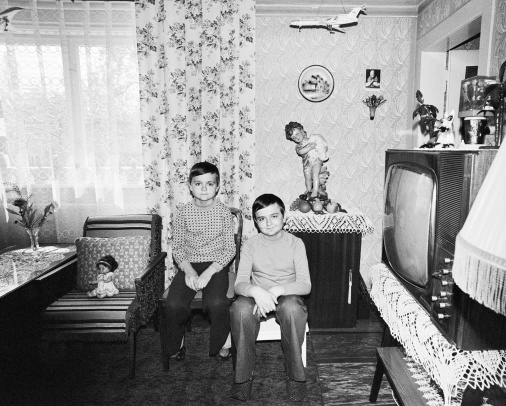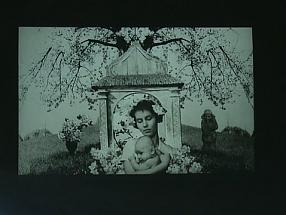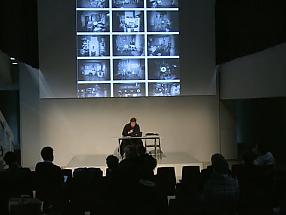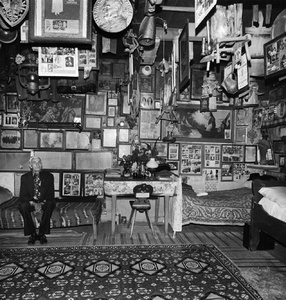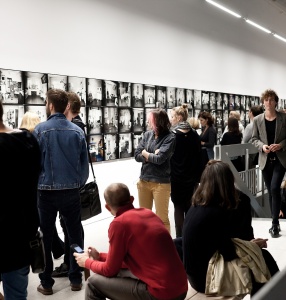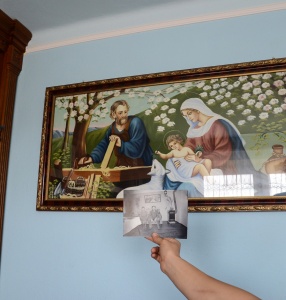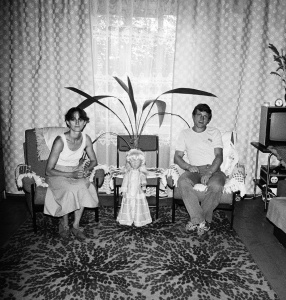Between “old objectivity” and “naive conceptualism”
A series of meetings in conjunction with the exhibition “Zofia Rydet, Record 1978-1990”
The Museum of Modern Art in Warsaw invites to a series of meetings in conjunction with the exhibition “Zofia Rydet, Record 1978-1990”.
“I have never claimed a strong utilitarian character for the Record. On the contrary – I say that this document transcends its boundaries and may be interpreted in different ways. Who knows, this might turn out to be the best thing I've ever done”.
When Zofia Rydet began working on the series that would later be called “Sociological Record”, she probably couldn't imagine the project would consume her to such an extent. Photographing people in Poland in their homes or on their doorsteps, she produced a massive archive of over ten thousand negatives of faces, interiors, objects and pictures. The project consumed her entirely, to the extent that she never managed to give it a final shape – neither in the form of a book nor an exhibition. There was always another place she wanted to visit, more people she wanted to photograph.
The meetings accompanying the exhibition “Zofia Rydet. Record, 1978-1990” are an attempt to open the Record to questioning, to problematize it and show where and how it transcends its boundaries, what interpretations it offers. The artist herself was unresolved about how to define her work. Is it a piece of art or science – or perhaps, above all, a testimony of its time?
The first meeting will be a guided tour of the exhibition by Ewa Klekot, who will follow Zofia Rydet's ethnographic (rather that sociological) sensibility and consider the way in which objects appear in the Record. Krzysztof Pijarski will then attempt to put Rydet's opus magnum in a wider context of questions and initiatives of the photographic culture of the time, and ask about the sources of the “documentary impulse” that drove her. Łukasz Zaremba and Witek Orski will take on the immense number of pictures that can be found in Rydet's photographs – from television screens to portraits of John Paul II. Agnieszka Pajączkowska and Zofia Augustyńska-Martyniak on the other hand will be presenting the effects of their work with the Record on-site: as a part of the project “What remains” they sought out Rydet’s sitters in five chosen places, listened to their stories and gifted them copies of the original photographs.
Apart from that, we will ask: what does it mean to show an artist's work for the first time only after their death? Who does the artwork belong to in this situation? What is the nature of such a presentation in an art museum? A discussion of those matters will be held by Ulrich Pohlmann and Karol Hordziej. To finish off the series of meetings Ewa Tatar will juxtapose the Record with another example of a total “record” - Władysław Hasior's photographic notebooks.
October 24 (Saturday)
Ewa Klekot's guided tour of the exhibition, the ethnographic path
November 10, 6 p.m. (Tuesday)
Łukasz Zaremba and Witek Orski on pictures within Rydet's pictures
November 24, 6 p.m. (Tueaday)
Agnieszka Pajączkowska and Zofia Augustyńska-Martyniak on their research on "Sociological Record"
December 2, 6 p.m. (Wednesday)
Sebastian Cichocki, Karol Kołodziej, Ulrich Polmann
December 8, 6 p.m. (Tuesday)
Krzysztof Pijarski on “sociological photography”
December 15, 6 p.m. (Tuesday)
Ewa Tatar on Hasior's photographic notebooks
